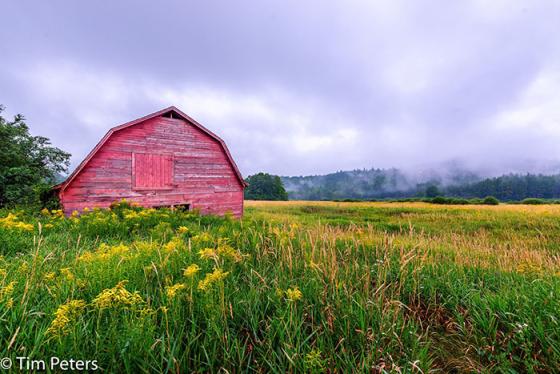Posted February 8, 2017 at 09:08am by Amy Overstreet
February 17th is deadline to apply for assistance to install conservation practices through NRCS' EQIP

Vermont Farmers Can Receive Financial Assistance to Install Structural Practices that Protect and Improve Water Quality
The USDA-Natural Resources Conservation Service (NRCS) in Vermont is encouraging producers to submit applications for financial and technical assistance through the Environmental Quality Incentives Program (EQIP). While EQIP is offered through a continuous signup, NRCS makes periodic funding selections. The last application cut-off date for farmstead practices to be funded in 2017 is February 17, 2017.
Examples of farmstead conservation practices include barnyard structural practices such as manure waste lagoons, heavy use areas, manure pits, etc. NRCS State Conservationist Vicky Drew said farmers should not wait to submit applications. “Structural practices that can help farmers protect and improve soil and water quality require a considerable amount of planning and engineering design,” she explained. “To increase chances of receiving assistance, farmers should get started on the application process as soon as possible,” she added.
EQIP allows farmers to conserve natural resources by making available financial assistance for a variety of conservation activities. Applications must be submitted and approved before implementing conservation practices.
Last year, VT NRCS allocated $10.4 million through EQIP directly to farmers and forest landowners in Vermont to help plan and implement conservation practices that address natural resource concerns and for opportunities to improve soil, water, plant, animal, air and related resources on agricultural land and non-industrial private forestland. EQIP can also help Vermont farmers meet Federal, State, and local environmental regulations.
EQIP is an important Farm Bill conservation program that helps established farmers as well as beginning, historically underserved, and limited resource producers. Learn more by visiting the Vermont NRCS EQIP website or contact your local NRCS office.
For the latest conservation updates, follow Vermont NRCS on Twitter @VermontNRCS.
